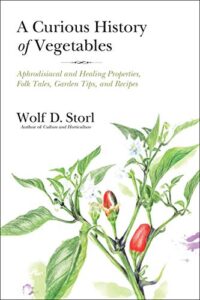 There are certain authors whose works alone make me very much wish I was fluent in the language in which those authors write to ensure that I was able to read all of their collected works. On the list of those for the sake of whose works I would learn German just to be able to read is the ethnobotanist and cultural anthropologist Wolf-Dieter Storl. Fortunately, some of his more than two dozen published books have in recent years been translated into English – a copy of one of the more recent of which found its way to my post box not so very long ago.
There are certain authors whose works alone make me very much wish I was fluent in the language in which those authors write to ensure that I was able to read all of their collected works. On the list of those for the sake of whose works I would learn German just to be able to read is the ethnobotanist and cultural anthropologist Wolf-Dieter Storl. Fortunately, some of his more than two dozen published books have in recent years been translated into English – a copy of one of the more recent of which found its way to my post box not so very long ago.
For those unfamiliar with Professor Storl, he is one of those remarkable people who have blurred the conventional boundaries in his life-long quest to understand the relationships – both historic as well as present-day – between people and plants, and then to share with others what he has learned.
In A Curious History of Vegetables; Aphrodisiacal and Healing Properties, Folk Tales, Garden Tips, and Recipes, the English translation published by North Atlantic Books of his Bekannte und vergessene Gemüse Neuausgabe; Ethnobotanik, Heilkunde und Anwendungen, he examines the remarkable natural histories of many of our most familiar and favorite vegetables, as well as others that have now been largely forgotten but certainly deserve to be remembered. From carrots and peas to Good King Henry and skirret, Prof. Storl delves into the botanical, medicinal, spiritual, and culinary histories of a range of plants whose metaphorical roots have been woven into the fabric of our own societies often for longer than their physical roots have grown through the soil of our gardens.
If you enjoyed reading this, please consider signing up for The Well-read Naturalist's newsletter. You'll receive a helpful list of recently published reviews, short essays, and notes about books in your e-mail inbox once each fortnight.
